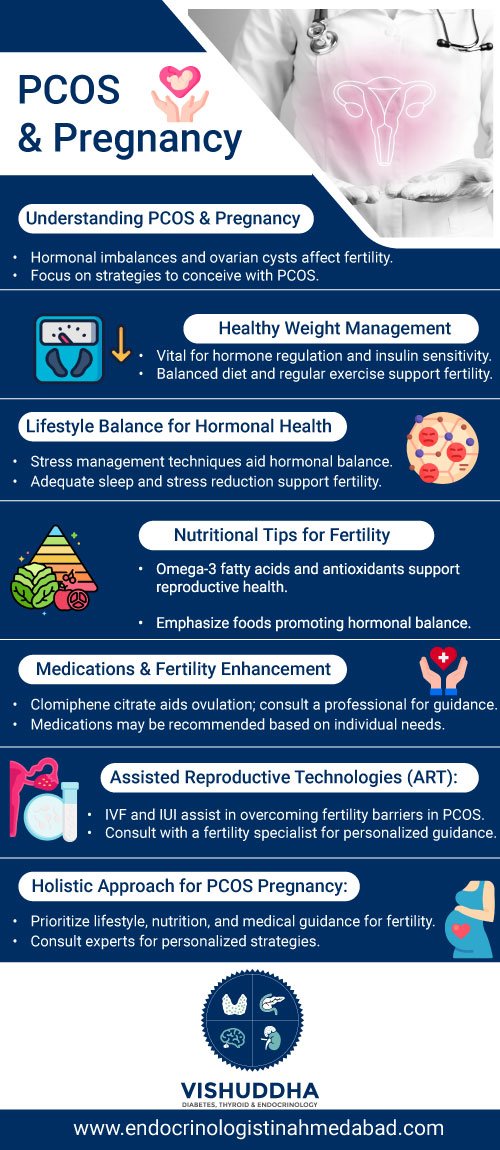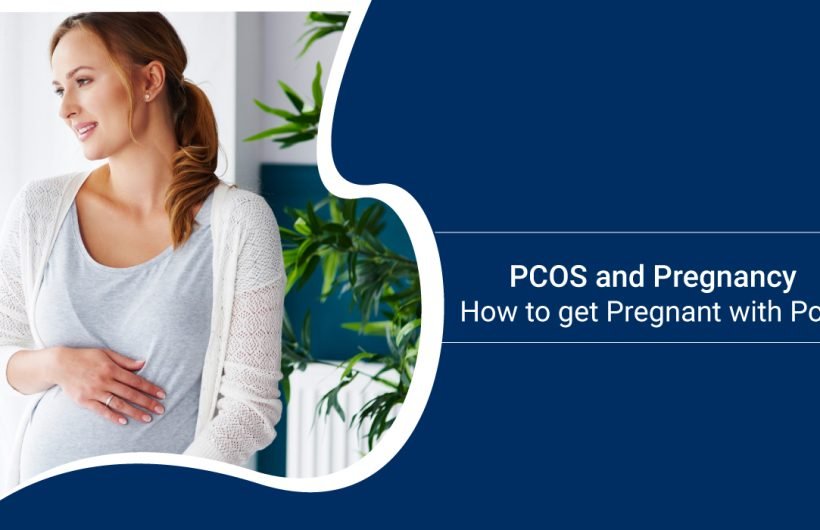Polycystic Ovary Syndrome (PCOS) is a common hormonal disorder affecting people of reproductive age, and one of its significant challenges is fertility. For those dreaming of starting a family, navigating the complexities of PCOS and pregnancy can be overwhelming. In this comprehensive guide, we will explore effective strategies to enhance fertility and increase the chances of getting pregnant with PCOS.

Understanding PCOS and its Impact on Pregnancy
PCOS is characterized by hormonal imbalances, insulin resistance, and the presence of cysts on the ovaries. These factors can disrupt the normal ovulation process, leading to irregular menstrual cycles and difficulties in conceiving. However, with the right approach, it is possible to manage PCOS and improve fertility by understanding how to get Pregnant with PCOS.
- Maintaining a Healthy Weight: The Foundation for Pcos Pregnancy
One crucial factor in managing PCOS and increasing fertility is maintaining a healthy weight. Excess weight can exacerbate hormonal imbalances and insulin resistance, making it harder to conceive. Focus on a balanced diet rich in whole foods, lean proteins, and complex carbohydrates. Regular exercise not only aids in weight management but also helps regulate insulin levels and improve overall reproductive health.
- Balancing Hormones with Lifestyle Changes for Pcos Pregnancy
Lifestyle modifications play a pivotal role in managing PCOS and promoting a healthy PCOS pregnancy. Stress management techniques, such as yoga and meditation, can help regulate cortisol levels and reduce the impact of stress on hormonal balance. Adequate sleep is equally important, as irregular sleep patterns can disrupt the delicate interplay of hormones crucial for fertility.
- Nutritional Strategies for PCOS Pregnancy
Dietary choices can significantly influence fertility in individuals with PCOS and increase the chances on how to get pregnant with PCOS. Emphasise foods that support hormonal balance and reproductive health. Omega-3 fatty acids, found in fish and flaxseeds, have anti-inflammatory properties that can benefit those with PCOS. Additionally, including foods rich in antioxidants, such as fruits and vegetables, can help combat oxidative stress and promote a healthier reproductive environment.
The Role of Medications in PCOS and Fertility
In some cases, medications may be prescribed to manage PCOS pregnancy symptoms and enhance fertility. Clomiphene citrate is a common medication that induces ovulation in individuals with PCOS. However, it is crucial to consult with a healthcare professional before starting any medication, as each person’s situation is unique, and the appropriate treatment may vary.
Optimizing Fertility with Assisted Reproductive Technologies (ART)
For individuals facing challenges in conceiving naturally, assisted reproductive technologies (ART) can be a viable option. In vitro fertilization (IVF) and intrauterine insemination (IUI) are examples of ART methods that can help overcome fertility obstacles associated with PCOS pregnancy. Consulting with a fertility specialist can provide personalized guidance on the most suitable treatment plan.
Tracking Ovulation and Menstrual Cycles
Understanding and tracking ovulation is crucial for individuals with PCOS trying to conceive. Various methods, such as ovulation predictor kits and basal body temperature tracking, can help determine the most fertile days in the menstrual cycle. This knowledge can enhance the timing of intercourse, increasing the likelihood of successful conception.
Conclusion
Navigating the journey of getting pregnant with PCOS requires a holistic approach that addresses lifestyle, nutrition, and medical interventions. By prioritizing a healthy weight, adopting lifestyle modifications, and seeking appropriate medical guidance, individuals with PCOS can optimize their fertility and increase the chances of a successful pregnancy.
Remember, each person’s journey is unique, and consulting with healthcare professionals specializing in fertility can provide personalized strategies for overcoming the challenges associated with PCOS pregnancy and achieving the dream of parenthood. If you would want such commitment to treatment regimens and monitoring, get in touch with Dr. Moxit Shah, a renowned endocrinologist with expertise in the diagnosis and treatment of hormone-related disorders and various forms of diabetes. Good outcomes are possible for both mother and child with the right management.






